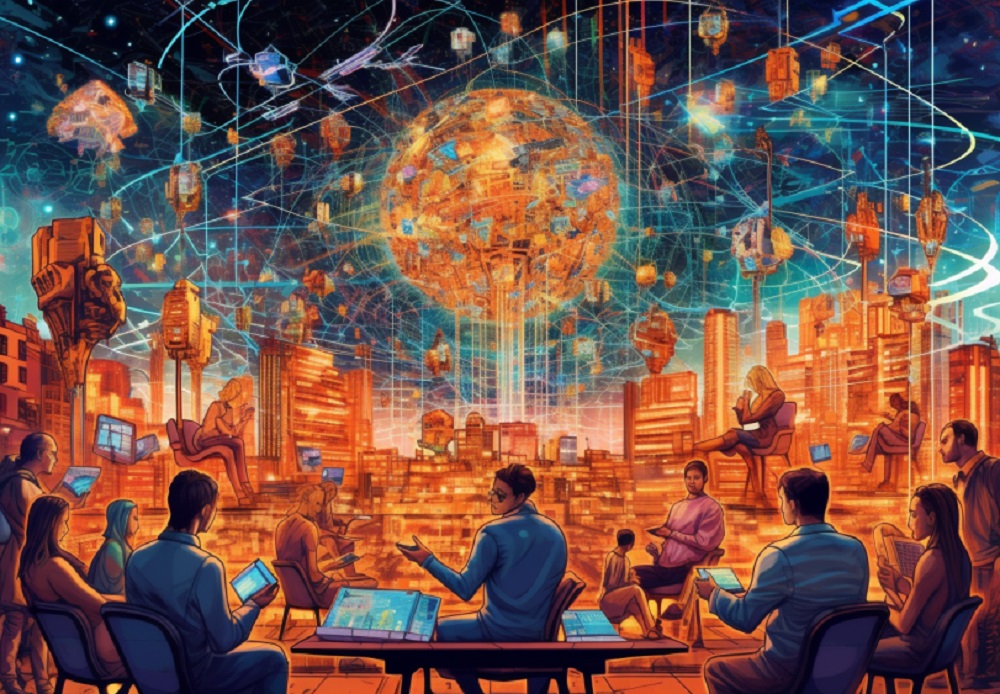The Metaverse, a virtual shared space that is created by the convergence of virtually enhanced physical reality and physically persistent virtual space, including the sum of all virtual worlds, augmented reality, and the internet, is quickly becoming a buzzword in the tech industry. As more and more companies and individuals look to enter this space, it's important to understand the various elements that go into metaverse development.
Here is a comprehensive guide to metaverse development, with five key areas to consider:
Platforms
One of the first decisions you'll need to make when developing for the metaverse is which platform you want to build on. There are several options available, each with their own pros and cons. Some popular platforms include:
- Virtual Reality (VR): VR platforms offer the most immersive experience, allowing users to fully enter a virtual world and interact with it using specialized hardware such as VR headsets and motion controllers. Examples of VR platforms include Oculus, HTC Vive, and PlayStation VR.
- Augmented Reality (AR): AR platforms overlay digital content on top of the real world, allowing users to interact with virtual elements in the context of their physical surroundings. Examples of AR platforms include Pokemon Go, Microsoft HoloLens, and Snapchat filters.
- Web-based: Web-based platforms allow users to access virtual worlds and experiences through a web browser, making them the most accessible option. Examples of web-based platforms include Second Life and VR Chat.
Content creation
Once you've chosen a platform, the next step is to start creating the actual content for your metaverse. This can include 3D models, audio files, and other assets that will be used to populate your virtual world. Depending on the complexity of your project, you may need to use specialized software such as 3D modeling tools or game engines. It's also important to consider the user experience and how you can make your metaverse as intuitive and engaging as possible.
Monetization
While the metaverse is still in its early stages, there are already several ways to monetize your virtual world or experience. Some options include:
- In-app purchases: Users can buy virtual items or currency within your app or platform.
- Subscription models: Users can pay a monthly fee to access your metaverse or premium content.
- Advertising: You can display ads within your metaverse, either as banner ads or more immersive branded experiences.
- Real estate: In some metaverses, users can purchase virtual real estate or property.
Community building
A key aspect of any successful metaverse is a strong community of users. Building a community can help increase engagement and retention, as well as provide valuable feedback and ideas for future development. There are several ways to encourage community building, including:
- Hosting events: Regular events or activities within your metaverse can help bring users together and foster a sense of community.
- Encouraging user-generated content: Allowing users to create and share their own content can help them feel more invested in the metaverse and encourage them to invite their friends.
- Providing social features: Adding features such as chat, forums, or groups can help users connect and interact with each other.
Governance
As the metaverse continues to grow, it's important to consider how it will be governed and regulated. This can include issues such as:
- Intellectual property: Who owns the rights to content created within the metaverse?
- User behavior: How will you enforce acceptable behavior within your metaverse, and what consequences will there be for breaking the rules?
- Jurisdiction: If users are located in different countries, which laws and regulations apply to the metaverse?
- Data privacy: How will you handle user data and ensure that it is protected?
Developing a clear governance framework can help ensure that your metaverse is a safe and enjoyable place for users, and can also protect your own interests as the creator of the metaverse.
In conclusion, metaverse development involves a wide range of considerations, from choosing the right platform and creating engaging content, to monetizing your project and building a strong community. By carefully planning and executing each step, you can create a successful and immersive metaverse experience.






